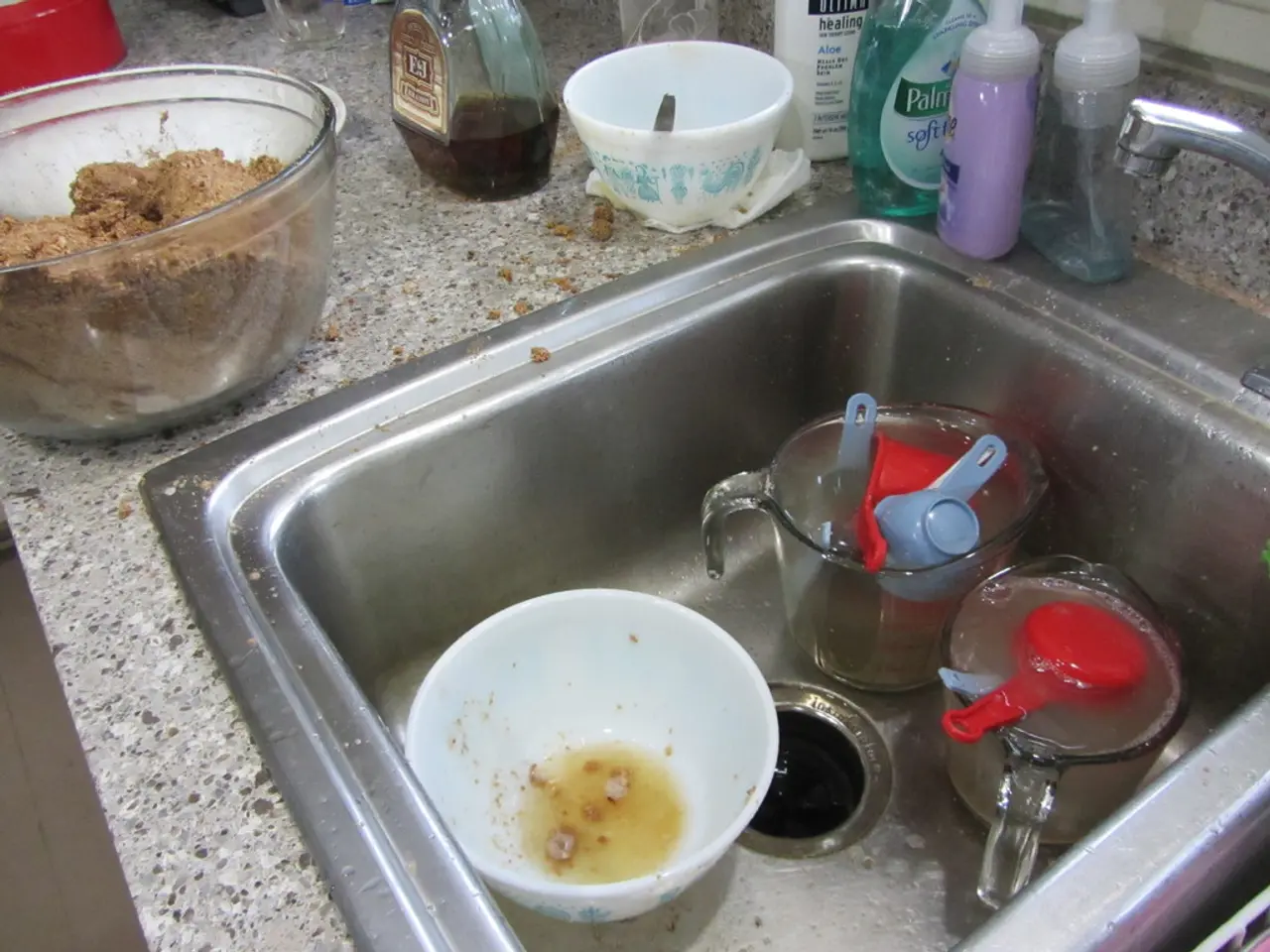Probiotics may potentially provide relief from urinary incontinence.
A new focus in the field of urinary health is the role of certain probiotics, specifically Lactobacillus strains, in maintaining a healthy urinary microbiome and potentially reducing conditions related to urinary incontinence.
According to recent studies, Lactobacillus rhamnosus GR-1 and Lactobacillus reuteri RC-14 are the most studied and recommended strains for this purpose. These strains have been shown to support vaginal and urinary tract health by maintaining or restoring a healthy microbial balance, which can help reduce infection recurrence and potentially improve urinary symptoms.
Lactobacillus crispatus CTV-05 also plays a role in maintaining a protective vaginal microbiome, which supports urinary tract health. While evidence is less strong compared to Lactobacillus rhamnosus GR-1 and Lactobacillus reuteri RC-14, it still holds promise.
Lactobacillus casei shirota and Lactobacillus acidophilus (La-14) combined with D-mannose also have a promising role in supporting urinary health. However, their effectiveness is not as well-established as the aforementioned strains.
These probiotics work by supporting the vaginal microbiome’s natural defense against pathogenic bacteria that cause urinary tract infections (UTIs) and possibly contribute to urinary incontinence by reducing inflammation or infection-related symptoms.
While there is limited evidence directly linking probiotics to reducing urinary incontinence itself, improving urinary and vaginal microbiota health with these specific strains could potentially alleviate symptoms indirectly. This is because urinary incontinence can be exacerbated by recurrent UTIs and microbiome imbalances.
A recent study published in the American Journal of Obstetrics and Gynecology found significant differences in the urinary tract microbiomes of women with urinary incontinence compared to women without it. The study also revealed that women with stress incontinence had different microbes in their urine compared to women with urgency incontinence. However, it did not discuss any potential treatments or interventions based on these findings.
In addition to managing diet and avoiding irritants such as carbonated drinks, tea and coffee, artificial sweeteners, corn syrup, foods and beverages that are high in spice, sugar, and acid, it may be beneficial to consult your doctor about switching to a medication that's less irritating to your bladder. Heart medications, blood pressure drugs, sedatives, muscle relaxants, and other medications can also contribute to bladder control problems.
Alcohol and caffeine are bladder stimulants and diuretics, meaning they trigger the urgent need to urinate, and should be avoided when possible.
It's important to note that while Lactobacillus-based probiotics may have the potential to prevent urinary tract infections, there hasn't been a lot of research into their effect on urinary incontinence. Furthermore, the study did not specify the specific bacterial strains that are not part of a healthy urinary microbiome.
Future research should focus on understanding the role of the gut microbiome in relation to the urinary microbiome and urinary incontinence, as well as developing treatments and interventions based on these findings. Pumpkin seed extract, for instance, has shown promise in reducing urgency for an overactive bladder.
In conclusion, maintaining a healthy urinary microbiome through the use of certain Lactobacillus strains may offer potential benefits for those suffering from urinary incontinence. However, more research is needed to fully understand the role of these strains and their potential applications in treating urinary incontinence. Always consult your healthcare provider for personalised advice and treatment options.
The use of Lactobacillus-based probiotics, such as Lactobacillus rhamnosus GR-1, Lactobacillus reuteri RC-14, Lactobacillus crispatus CTV-05, Lactobacillus casei shirota, and Lactobacillus acidophilus (La-14), could potentially improve women's health by supporting a healthy urinary microbiome and reducing conditions related to urinary incontinence. Additionally, understanding the role of the gut microbiome in relation to the urinary microbiome and urinary incontinence could lead to the development of new treatments and interventions in the future, such as the use of pumpkin seed extract for an overactive bladder.




